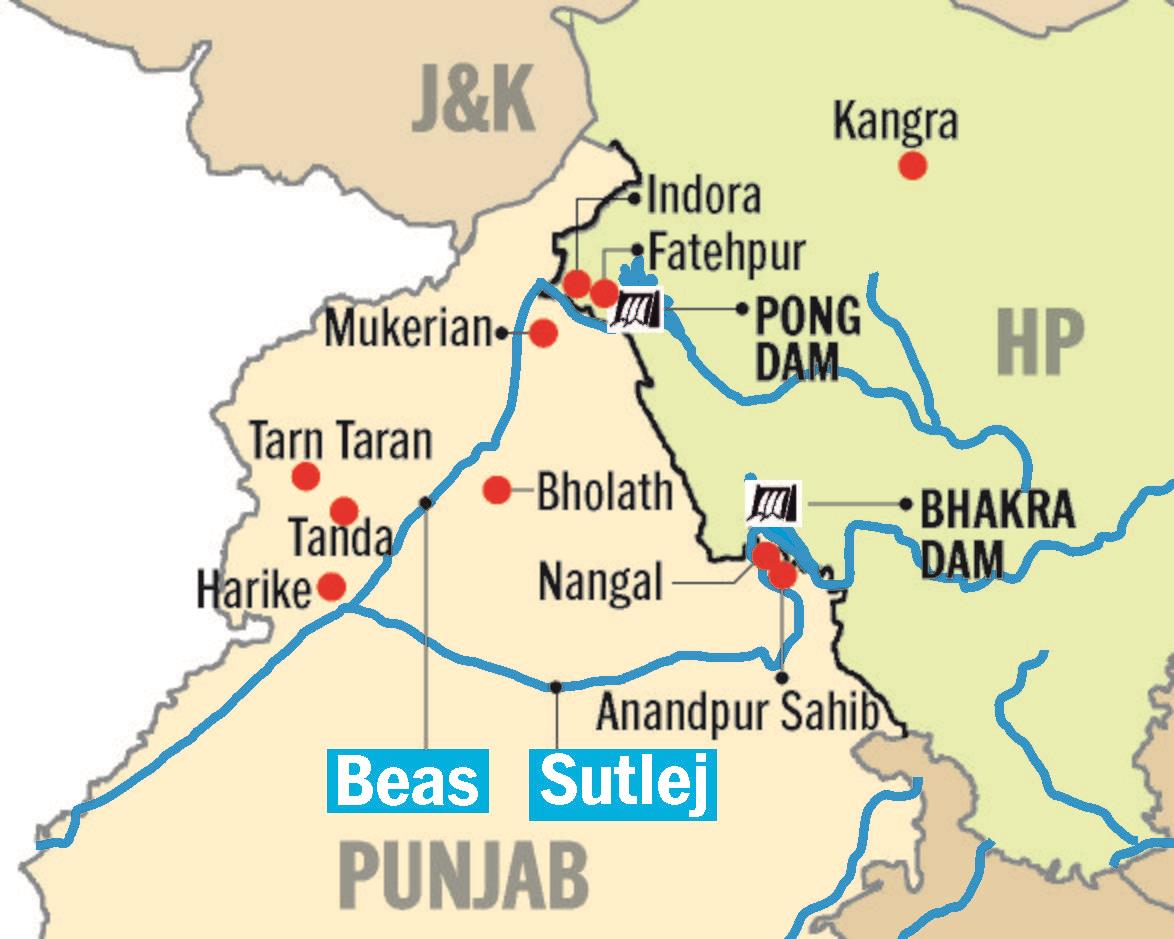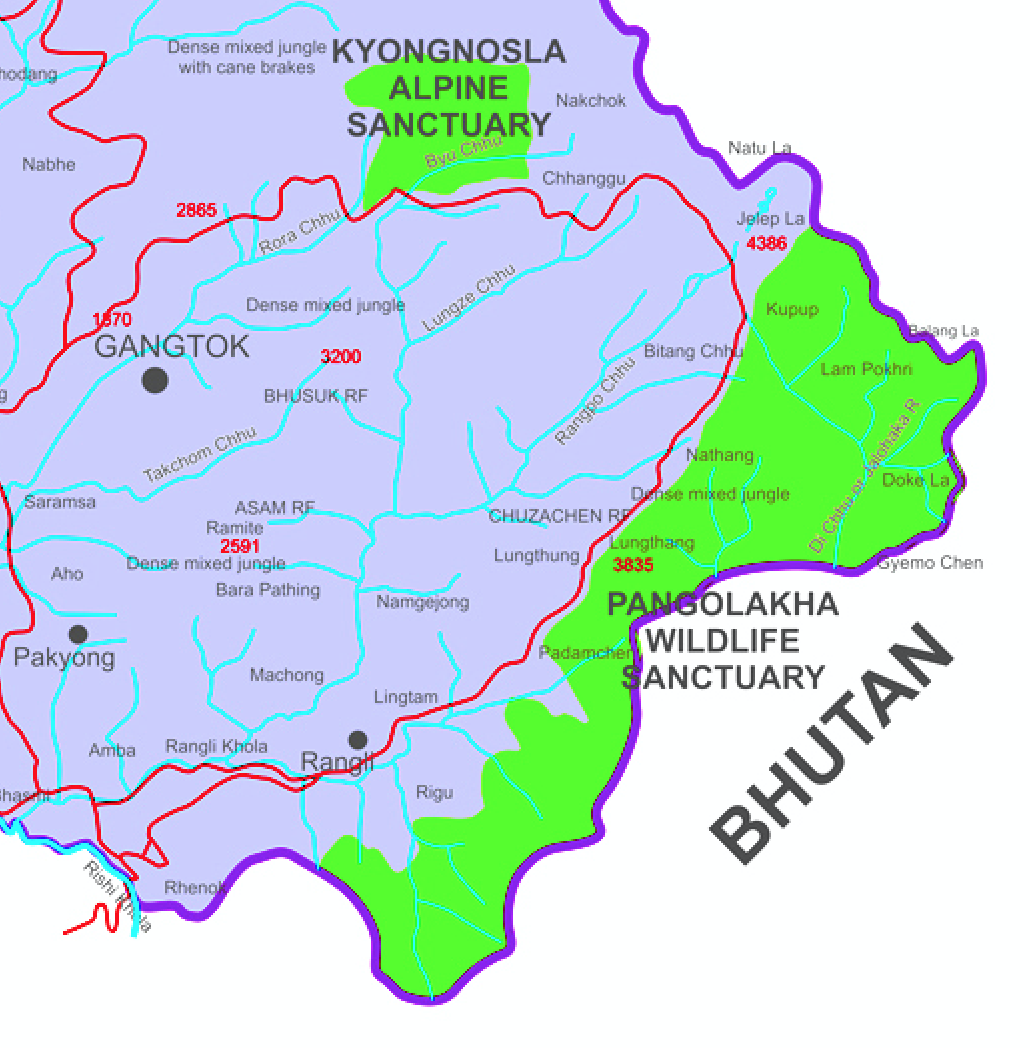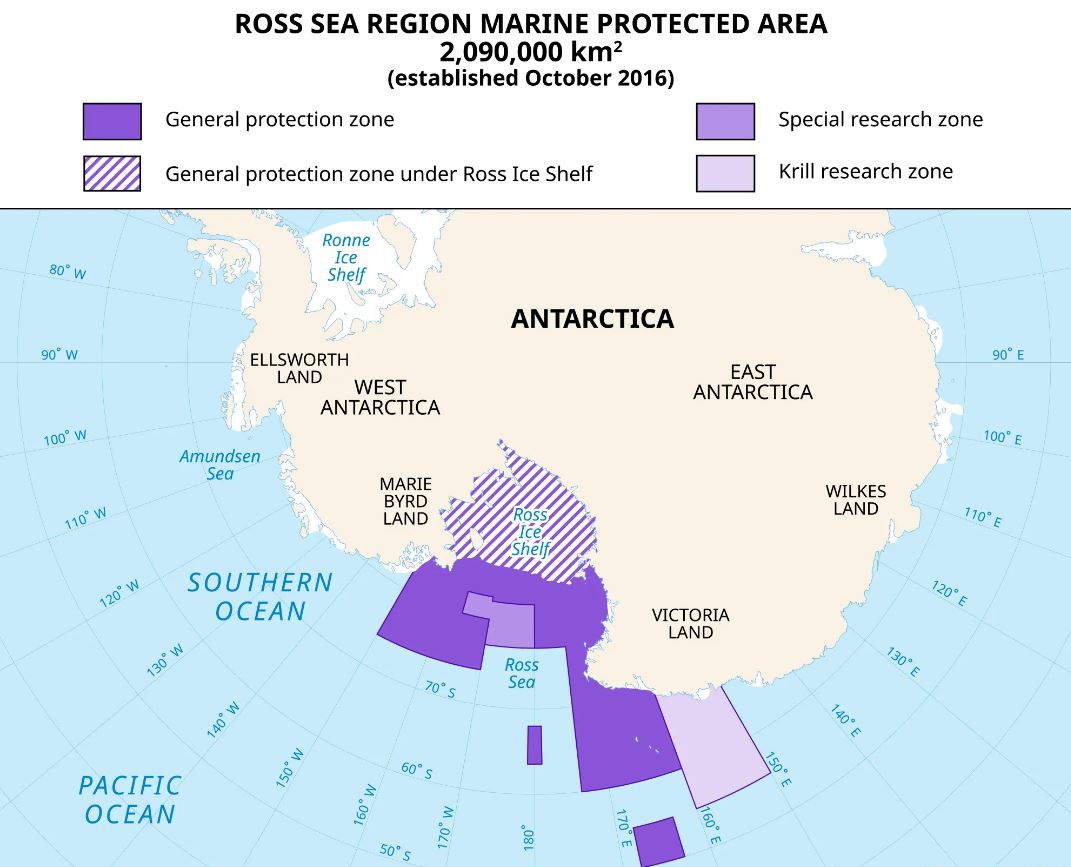Thrips parvispinus
The recent study states that ‘new invasive species of Thrips Parvispinus in Florida is tiny but deadly to landscapes and crops’.
Thrips are important group of sucking pests which cause significant economic losses both as pests and vectors of serious plant viruses in several horticultural crops.
- Common name – Karny, an invasive pest species.
- Size – The adult female is smaller than a pencil tip but visible to naked eye and their larvae are transparent.
- Life cycle – About 2 weeks, the female is fertile within 9 days, laying about 15 eggs in a clutch.
- Feed – It is a polyphagous species, infesting beans, eggplant, papaya, chilli, pepper, potato, strawberry, tobacco and also it inflicts injury to ornamentals plants like Chrysanthemum.
- Infestations – Adults mainly colonize on flowers and underside of leaves whereas larvae suck sap from under surface.
- It also scratches the flesh, leading to curling leaves, stippling, scabbing and stunted growth, heavy flower drop and thereby reducing fruit production.
- Spread – They are present in at least 17 countries, including India, Indonesia, Japan, Taiwan, Singapore and Thailand.
- In India – It was 1st reported on Papaya from Bengaluru in 2015.
- During Rabi season of 2021-22, they were reported in chilli growing areas of Andhra Pradesh, Telangana and Karnataka.
- Its infestation increased during heavy rainfall of North East monsoon in contrast to other thrips species.
- Control measures - Promotion of cultural practices like deep summer ploughing, intercropping, clean cultivation, balanced use of fertilisers, uprooting and destruction of plant debris and Integrated Pest Management (IPM) strategies for pest control.
In India, Thrips Parvispinus might have dominated or even replaced the native chilli thrips known as scirtothrips dorsalis.
References
- The Palm Beach Post| Taming the new invasive pest in Florida
- The New Indian Express| Thrips parvispinus attack in India
- IIHR| Thrips parvispinus
Pink Lake
Senegal’s pink lake is on the verge of disappearing.
- Name – Lake Retba, better known as Lac Rose (the Pink Lake).
- Location – Around 35km from the city of Dakar, Senegal and it sits in a depression with a shoreline 6.5 metres below sea level.
- Water source – While the sea provides most of the lake’s water and all of its salt, it is isolated from the sea by sand dunes and its fresh water comes from the seasonal water table in the dunes, which are higher than the lake.
- Pink colour – Due to Dunaliella salina which contains red pigments.
When salinity is high, algae with red pigments thrive, and when salinity is low, they give way to other algae rich in green pigments.
- Challenges – Today, salt accumulation poses several challenges.
The supply of salt to the lake through the dunes is a permanent phenomenon, amounts to around 360,000 tonnes per year according to the results of our studies in 2008-2009.
- Drainage channel on the Southern shore introduces soil particles into the lake and dilutes the water quality and salt quality.
- Unfit and uncultivated salts would fill in the depression in few years, and the Pink Lake will disappear altogether.
Water samples from Pink Lake reveal extremely high levels of nitrates as of 2023.The nitrate limit set by the World Health Organization (WHO) is 50 mg/l for water to be considered potable.
- Recommendations to preserve – Prohibit the mining of shell middens and prohibit the exploitation of dune sand.
- Rehabilitate the belt of casuarina trees that stabilise the dunes.
- Ban urbanisation and tourist facilities and promote environmental education and awareness.
|
Dunaliella salina
|
- It is a halophilic green algae, associated with halophilic bacteria of the genus Halobacterium.
- Halophilic species can survive in salty environment.
- Salt tolerance – It is due to high concentration of carotenoid pigments, which protect it from light, and its high glycerol content.
- It contains at least 4 antioxidant pigments (beta-carotene, astaxanthin, lutein and zeaxanthin), which are rich in vitamins and trace elements.
|
Reference
Down To Earth| Pink Lake is under Threat of Extinction
Dusted Apollo
Dusted Apollo was sighted and photographed for 1st time in Himachal Pradesh at Manimahesh Lake of Chamba.
- It is an extremely rare high altitude butterfly species.
- Scientific name – Parnassius stenosemus.
- Discovery – 1890.
- Size - Medium to large, wingspans ranging from 5 to 7 cm.
- Distribution range – It extends from Ladakh to West Nepal.
- Habitat altitude – It flies between 3,500 to 4,800 meters in the inner Himalayas.
- Threat – Poaching.
|
|
Dusted Apollo
|
Ladakh Banded Apollo
|
|
Scientific Name
|
Parnassius stenosemus
|
Parnnasius stoliczkanus
|
|
Discal Band on Upper Fore Wing
|
It is complete, extends from costa to vein 1
|
It is incomplete, extends only up to vein 4
|
|
Dark Marginal Band on the Hind Wings
|
It is much narrower
|
Broader
|
Another rare species Regal Apollo (Parnnasius charltonius) was also photographed at Manimahesh Lake in Himachal, which is protected under Schedule II of the Wildlife Protection Act, 1972.
Apollo Species of Butterflies
- They are considered commercially important butterflies and they fetch high prices in the poaching industry.
- In Himachal Pradesh – There are 11 Apollo species recorded, 5 of them are declared as Scheduled species.
- Status – Most of them are now endangered and need immediate attention for their conservation and protection.
- Recommendations – There is a need to promote community awareness about poaching and the importance of these species.
- Also, establishing butterfly parks and conservation reserves in the State should be on the priority list of the government.
Reference
The Hindu| Dusted Apollo Butterflies in Himachal Pradesh.
Seabed Curtain project
Scientists are working on an unusual plan to prevent Antarctic glaciers from melting through seabed curtain project.
- Aim – To build a set of giant underwater curtains in front of ice sheets to protect them from being eroded by warm sea water.
- Need – Ice in Polar Regions is now disappearing at record rates as global warming intensifies.
- Warmer air melts the surface of glaciers, while they are also eroded at their bases by warm seawater.
Loss of the Thwaites and Pine Island glaciers could be enough to raise sea levels round the world by 3 metres if they melted.

- Proposal – To construct a 100km-long curtain attached to the bed of the Amundsen Sea and would rise by about 200 metres.
- Curtain – It would stretch along the seabed opposite the Thwaites and Pine Island glaciers to act as plugs that prevent the giant ice sheets behind them from sliding into the ocean.
- Working – It would partially restrict the inflow of relatively warm water that laps at the bases of coastal Antarctic glaciers and undermines them.

The Seabed Curtain project, if implemented, would be one of the biggest geo-engineering programmes ever undertaken.
Reference
The Guardian| Seabed Curtain Project
Higher photorespiration in warmer climates
A ground-breaking study by a team led by the Pennsylvania State University has revealed that trees release more carbon dioxide (CO2) in warmer and drier climates.
- Trees – They are considered the lungs of our planet Earth.
- Currently, plants absorb around 25% of human-emitted CO2, acting as a crucial carbon sink.
|
Photorespiration
|
- A process that involves the uptake of oxygen and release of carbon dioxide by the plant.
- It occurs in the cells of plants during both day and night.
- It decreases the sugar synthesis and wastes the energy of the cell.
- It is opposite of photosynthesis process, which involves the inhaling of carbon dioxide and release of oxygen by trees.
- Thus, it reverses the carbon-capturing process of photosynthesis
|
Rate of photorespiration is measured using wood samples. Researchers can now predict future tree "breathing" and unravel the past by examining fossilised wood.
- Findings of the research – It have challenged the prevailing notion of trees as climate change warriors.
- Accelerated photorespiration – In regions with heightened temperatures and water scarcity.
- Rate of photorespiration – It is up to 2 times higher in warmer climates, especially when water is limited than the cooler and wetter regions.
Reducing carbon dioxide emissions is crucial for mitigating climate change, as this is a major greenhouse gas contributing to global warming.
Reference
Wion News| Trees are giving out more CO2 in warmer regions
|
Other Important Topics
|
|
Chamundi Hills
|
|
Chamundi Hill ropeway plan in Mysuru resurfaces, green activists maintain opposition.
- It has an average elevation of 1,060 meters and is located in Mysore, Karnataka.
- The name comes from the Chamundeshwari Temple at the peak.
- These hills have been mentioned in the ancient Hindu scriptures such as ‘Skanda Purana’.
|
|
Typbar
|
|
India-made typhoid vaccine efficacy lasts for four years.
- Typbar is an active immunizing agent, given to prevent typhoid fever caused by certain bacteria called S. Typhi.
- It is the world's first vegetarian or non-bovine typhoid vaccine.
- Bharat Biotech is the largest primary manufacturer of typhoid vaccine in the country.
|
|
Climbing Himalayan Treelines
|
|
Himalayan treelines might be climbing higher in response to climate change.
- A new study of the Trans-Himalayan region in Nepal and Hengduan Mountains in China revealed that the former is experiencing rapid shifts in treeline.
- Alterations in treeline elevation may disrupt the delicate balance of the hydrological cycle, affecting water availability downstream as snow and ice melt patterns change.
- In the Himalayan region, temperatures are rising more than the global average, with fewer cold days and more warm days, making ecosystems there vulnerable to climate change.
|
|
Patna Declaration
|
|
Bihar to bring 'Patna declaration' at international workshop to discuss bird conservation efforts.
- The international workshop on 'Bird Conservation Initiatives in India’ is being organised by the Department of Environment, Forest and Climate Change (DEFCC) of Bihar government.
- The declaration will talk about the state's action plan for conserving the birds with respect to CAF.
- It will also talk about developing strategies and concerted actions for curbing illegal hunting, taking and trade of birds in the CAF Region.
|
|
Thangjing Hill
|
|
A cross has been installed atop the Thangjing hill by the Kuki community near Manipur's Moirang town which was seen as destabilizing in the already violence-hit Manipur.
- Thangjing is a primordial deity in Meitei mythology and religion of Ancient Kangleipak (Antique Manipur).
- The hill falls under Churachandpur district, in Manipur.
- According to the 2011 census, 83.38% of Meiteis practice Hinduism,
|
|
Pong Dam
|
|
Over 83000 migratory birds descend upon Pong wetland, count lower than last winter.
 It is a manmade reservoir formed due to the construction of Pong Dam on Beas River in the wetland zone of Shivalik hills. It is a manmade reservoir formed due to the construction of Pong Dam on Beas River in the wetland zone of Shivalik hills. - It is also known as the Maharana Pratap Sagar.
- It is the highest earth fill dam in India and was constructed in 1975.
- Pong Dam Lake Wildlife Sanctuary - It is located in Himachal Pradesh.
- It is listed as one of the Ramsar sites in the year 2002.

|
|
Pangolakha Wildlife Sanctuary
|
- It is situated at the tri-junction of Sikkim, Bhutan and West Bengal.
- The Pangolakha range in the east separates Sikkim from Bhutan.
- It is home to various species, including red pandas, snow leopards, Himalayan musk, deer, goral and black bears.
- The area includes Lake Tsongmo, a biodiversity hotspot for migratory birds.
- Major rivers like Rangpo and Jaldhaka originate from nearby lakes within the sanctuary.

|
|
China's Fifth Research Station
|
|
Helipad construction starts in China's new Antarctic research station.
- The new scientific research station is located along the coastal areas of the Ross Sea.
- The station will monitor and study the atmospheric and marine environment of Antarctica as well as the biological and ecological conditions there.

|
Other Chinese Stations
|
|
Name
|
Location
|
|
Great Wall
|
King George Island
|
|
Zhongshan
|
Larsemann Hills, Prydz Bay
|
|
Taishan
|
East Antarctic Ice Sheet
|
|
Kunlun
|
Princess Elizabeth Land
|
|
|
Red Sea Naval Mission
|
|
EU aiming to launch Red Sea naval mission by mid-Feb.
- France, Greece and Italy have shown interest in leading the mission, with seven countries so far indicating they would be willing to send naval assets.
- The operation would initially see three vessels under EU command.
- France and Italy already have warships in the region, and Germany plans to send the Hesse frigate to the area.
|
|
First Woman Chief Justice of Uttarakhand
|
|
First woman Chief Justice of Uttarakhand appointed.
- Justice Ritu Bahri becomes first woman Chief Justice of Uttarakhand.
- Before becoming the Chief Justice of Uttarakhand, Justice Bahri was a judge in the Punjab and Haryana High Court.
|

